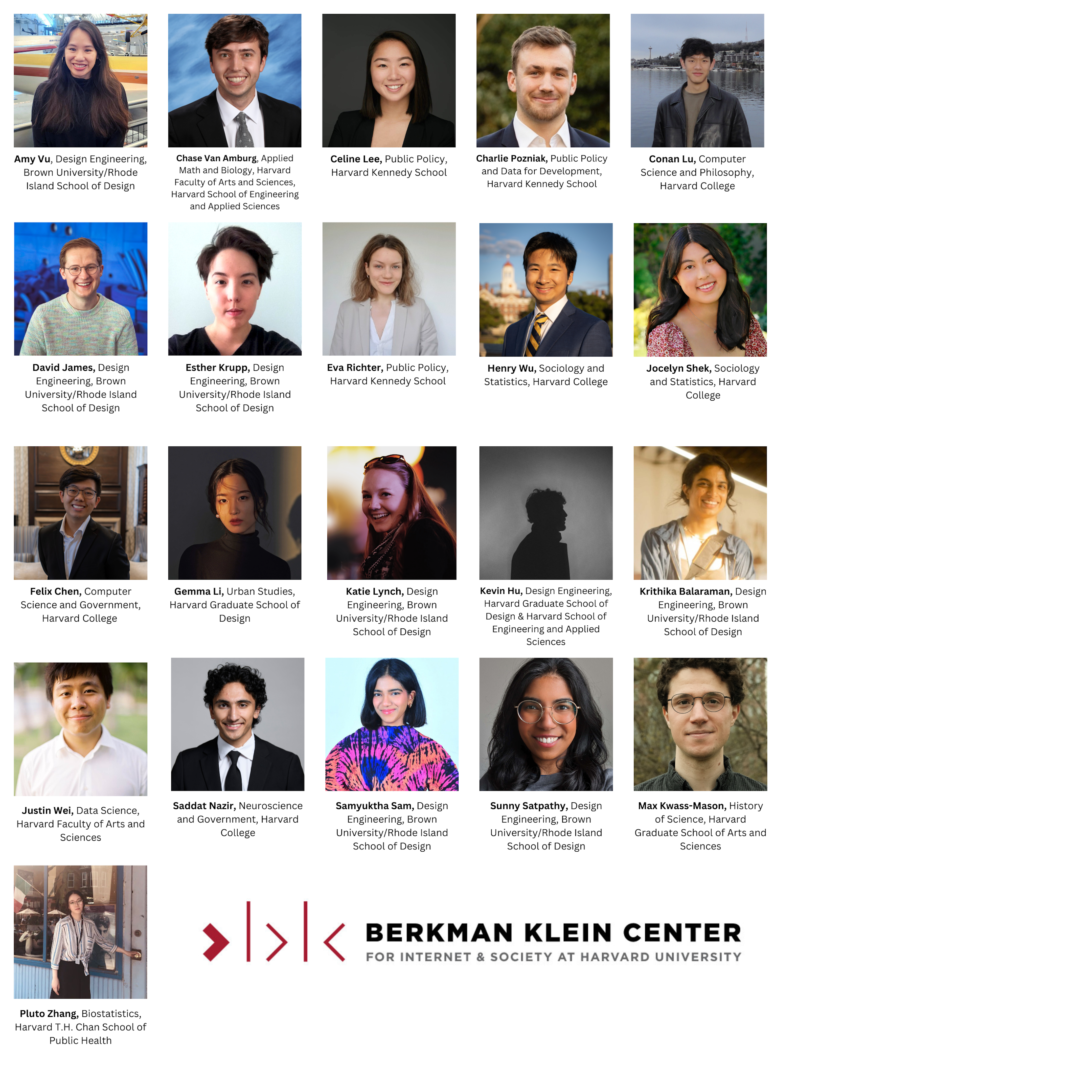
Visualizing Boston's Urban Spaces Using Open Data
Research sprint re-imagines new and trustworthy data systems in Boston
This research sprint was organized by the Berkman Klein Center (BKC) in partnership with the Edgelands Institute and the Master of Arts in Design Engineering (MADE) program at Brown University and Rhode Island School of Design (RISD). Participants worked collaboratively to develop a museum exhibit showcasing data visualizations that highlight new and trustworthy uses of data in Boston. We were delighted to partner with the Museum of Science, Boston to present the exhibit to the public in April 2024.
For eight weeks, 22 students from across Harvard University and the MADE program re-envisioned how urban data can provide people with safe, helpful, and inspiring experiences as they move through, work in, and reside in the city of Boston. This program marked the first time a Berkman Klein Center research sprint focused on concerns local to the Boston community, and still the issues at the heart of the program have far-reaching implications for urban residents worldwide. Together with experts from both the Boston area and across the globe, the program’s student cohort grappled with artificial intelligence policy, surveillance, and data use in urban spaces. They considered the tension between using data to improve people’s experiences of cities and minimizing the risks and harms of using city data, even when used for positive purposes.
We are delighted to share that these students participated in the sprint and created the exhibit.

Co-Chairs of this sprint are Elisabeth Sylvan, Senior Director of Strategy and Programming at the Berkman Klein Center (BKC), Beth Altringer Eagle, Professor and Executive Director of the joint MADE Program at Brown University’s School of Engineering and Rhode Island School of Design (RISD), and Beatriz Botero and Laura Garcia of Edgelands Institute. The operational team is composed of Madeline McGee, Chelsea McGovern, and Ellen Willemin.